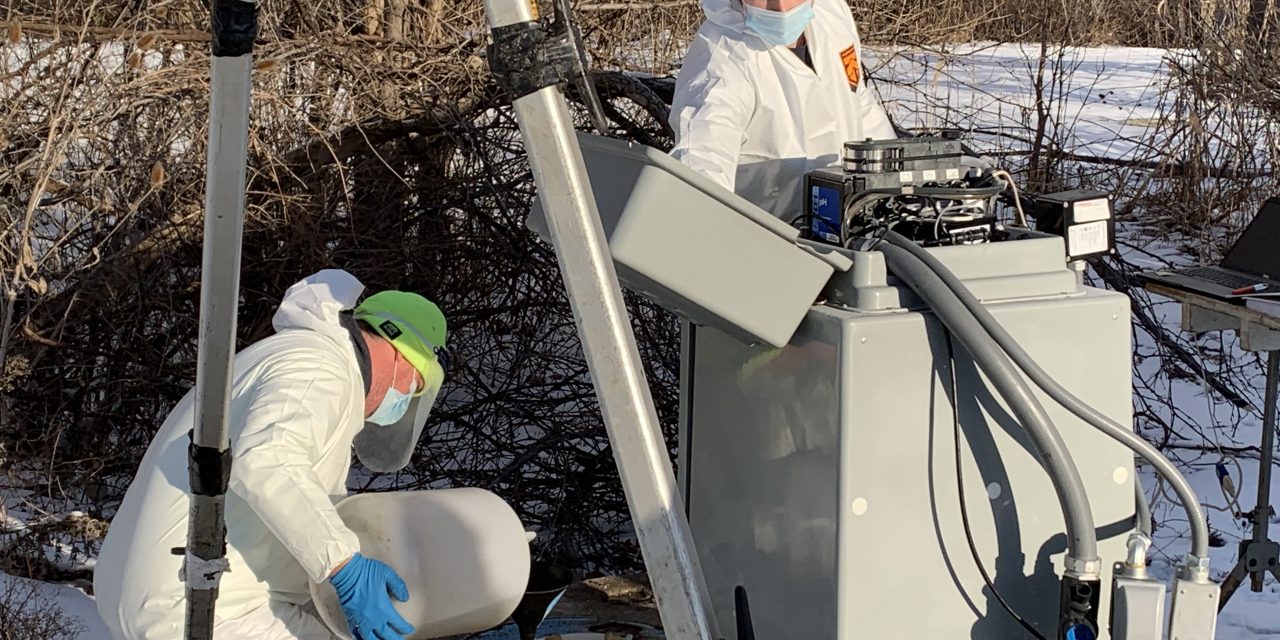The number of Macomb County residents who have tested positive for Covid-19 has increased 125 percent in the last 14 days, putting residents at a “very high risk level,” according to county officials.
That jump in cases exceeds the statewide increase of 101 percent for the same period. But samples taken from the sewage system by the Macomb County Public Works Office (pictured above) indicate that Covid infections are higher than what state health officials are reporting and will continue to rise.
Research shows that sewage testing provide an unmistakable, big-picture of Covid-19 spread in local communities.
“Testing shows the trend line of what’s coming about a week before, it’s a precursor. Unfortunately, our testing is showing that Covid cases will continue to climb into next week,” county Public Works Commissioner Candice Miller said.
At one point last fall, analysis of sewage lab results showed the level of Covid in Clinton Township, where much of the county’s wastewater converges, was approximately five times higher than what clinical reporting data showed.
The Macomb County Health Department reports that swab testing indicates a 9.5 percent positivity rate in March, as the county’s overall 1,880 deaths from the virus nears the 2,000 mark.
The uptick in cases began in mid-February, with the biggest jump among 20 to 39-year-olds.
A Covid outbreak at Eisenhower High School in Shelby Township reported Monday has forced the school to revert back to remote learning as the county Health Department mandated that all 400-plus students must quarantine at home.
The lockdown came after approximately 40 students tested positive. In-person classes are expected to restart April 19.
The Eisenhower situation serves as an example of the benefits of sewage testing. As some infected individuals await test results – or don’t get tested at all — the data from sewage samples provide a quicker and more thorough snapshot of infection in the population.
Conducting diagnostic tests on an entire population has proven impractical, and such tests are not equitably distributed. However, everyone uses the bathroom. So, wastewater sampling allows for testing for the coronavirus’ presence in thousands of people at once.
Relying on federal anti-virus funds, the Public Works Office launched a pilot project last May to examine sewage samples from seven locations in Clinton Township. That project became a leading edge program in Michigan. In Macomb, testing expanded to all of Sterling Heights and a portion of Lenox Township. Sewage sampling in Sterling Heights and Lenox Township wrapped up at the end of December.






